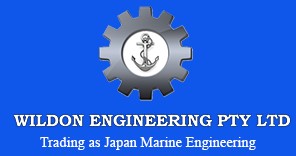Everything You Must Know About Marine Compressors
Blog | February 7th, 2023
Marine vessels maximise a wide array of components to ensure they can run optimally. Engines, for instance, are needed to generate enough mechanical energy to turn the propeller of ships and move them through the water. They often burn diesel oil or heavy fuel oil so they can provide the needed fuel for the marine vessels.
Another vital component of marine vessels is the marine compressor.
Main Roles of Marine Compressors
Marine compressors can often be found on marine vessels as they generate essential kinetic power for various functionalities. Engines, which are mostly utilised for ship locomotion and other services, are often automated and controlled by marine compressors. They can even start the main and auxiliary engines in a short time.
Aside from engine automation and control, marine compressors can also help provide power to chisels, drills, grinders, and other similar tools. These marine components can likewise blow soot into the ship’s boiler and economiser.
Many more applications are associated with marine compressors. They can ensure that vital safety features like foghorns and whistles can work optimally. They can also help power pneumatic pumps, allowing them to transfer bilge, oil, and water. Marine compressors can also pressurise hydrophores for domestic fresh and sanitary water supplies, operate emergency fire pumps, and carry out aerobic sewage breakdown.
Marine Compressors’ Challenges
Given the roles and applications of marine compressors, they are often maximised on boats and ships. These components may meet high psi demands, but they can generate challenges during the first and second stages.
Low pressure during these stages may occur due to a partially open suction valve during compression, a faulty discharge valve, and leaking piston rings. High pressure during the first discharge may then occur due to blocked intercooler tubes and faulty suction valves. Too high pressure during the second stage may likewise happen due to the obstruction in the aftercooler or discharge valve. Pressure may also rise due to stiff discharge valve springs and too high air bottle pressure.
Maintaining Marine Compressors
To ensure that marine compressors can work optimally, they should be inspected and maintained regularly. Issues related to pressure during discharge can be resolved optimally by maintaining the filters, valves, and rings. Their cooling system must also be maintained by inspecting their intercoolers and aftercoolers regularly, testing their intercoolers for any leaks, removing oil or deposits, and overhauling water line valves. If some parts have become faulty, they should be replaced right away to avoid attaining more problems.
However, if the whole marine compressors do not work anymore despite part replacements and regular upkeep, they should be replaced entirely. Fortunately, we, at Wildon Engineering, offer a wide array of marine compressors to match the needs of our clients.
Our marine compressor offerings are made by YANMAR, a popular Japanese diesel engine, and heavy machinery manufacturer. Some models of YANMAR marine compressors that we offer come from the C series, SC series, and KSC series.
Optimized by NetwizardSEO.com.au
Recent Posts
- Turbochargers Supply from Japan Marine: Wildon Engineering’s Excellence in Global Shipping
- Mitsubishi VOS Ballast Water Treatment System: Next-Generation Marine Environmental Solutions
- Yanmar Marine Compressors: Reliable Power Systems for Commercial Vessels
- Water-Lubricated Stern Tube Bearings Explained: How EVR Technology Supports Marine Propulsion
- YANMAR Auxiliary Generator Engine Parts for Commercial Vessels
- Fluid Control Systems: Innovations in Marine Applications
- Yanmar Diesel Generators Australian Distributor: Power for Shipping & Marine Operations
- Navigation & Communication Equipment: Essential Tools for Safe Voyages
- Stern Tube Seals: Preventing Leaks & Maintaining Vessel Integrity
- Innovative Cathodic Protection Technologies for Maritime Industries
